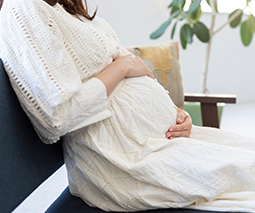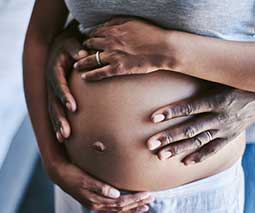Screening for 500 ‘severe and deadly’ childhood disorders is a game changer

In an unprecedented trial, tens of thousands of couples hoping to become parents will get free testing to detect about 500 genes linked to severe and deadly genetic disorders.
A radical change in family planning
The results of the trial could radically transform family planning in Australia, reports The Sydney Morning Herald.
Right now the researchers behind The Australian Reproductive Carrier Screening Project (ARCSP) are in the process of finalising the extraordinary list of severe and many terminal genetic conditions. The list will be massive but will include spinal muscular atrophy (SMA), cystic fibrosis and fragile X syndrome.
Couples who are detected as being carriers of the listed diseases will be offered subsidised IVF treatment to help them with their dream of having a healthy baby.

Mackenzie’s mission
The project is in honour of baby Mackenzie Casella who was diagnosed with SMA1 and died in October last year, at just sevens months old.
Before their baby’s diagnosis, Mackenzie’s parents, Rachael and Jonathan Casella had never heard of SMA or the blood test that could have warned them of the risk of them passing on the condition to their children. They both carry a gene mutation that means there is a one in four chance of their baby having SMA and a one in two chance of being carriers themselves.
A game changer
The $20 million pilot trial is a big deal and is part of the Government’s $500 million Genomics Health Futures Mission investment.
“The magnitude of this is unprecedented,” Stephen Robson, president of the Royal Australian and New Zealand College of Obstetricians and Gynaecologists, told The Sydney Morning Herald.
“A lot of these conditions are so rare most people would have never heard of them, but they can be catastrophic when they happen.”
SMA, cystic fibrosis and fragile X are some of the most common of the rare conditions that will be included in the screening, but researchers are also looking to include those that are ultra rare.

Genetic lottery
While everyone carries around three to five recessive genes for serious conditions, it is only when both parents carry the same mutation that this becomes a risk for their future children. This is called autosomal recessive inheritance, which is what happened to baby Mackenzie, but the chances of it occurring are very low.
The couples taking part in the trial will only be told they have a genetic mutation if both of them carry the same mutation for one of the 500 conditions listed. It is estimated this will be 1 percent of all the couples to be tested, but could be as high as 3 percent.
Currently, a couple can pay about $400 for carrier testing to determine if they carry the mutations for SMA, cystic fibrosis and fragile X, but they are not routinely offered and many doctors do not know the tests exist.
More health news:
- Whooping cough: Should babies be vaccinated at birth?
- Science confirms cuddles really DO help ease babies’ pain
- Grieving mum shares warning after 2-year-old dies from undiagnosed diabetes
How the diseases are chosen
The conditions to be included are either deadly or severely debilitating childhood disorders. Some will be diseases in which early diagnosis can lead to improved outcomes, if parents chose to forego the IVF screening option.
“It’s not about judging if conditions are more worthy of screening than others. We need to think about what information will be most helpful for couples,” Dr Robson told SMH.
Educating doctors
Part of the project is about making doctors aware of preconception carrier screening, particularly as it is estimated almost half of all pregnancies are unplanned.
“We need to think about how we make couples aware of this and how doctors can include this in conversations with patients that may want to start a family,” Dr Robson said.
Playing God?
Dr Robson also said he has been asked whether this is an attempt to create a ‘master race’.
“Absolutely not. This is a program with a good heart and is about empowering women and giving couples information to help them make informed decisions that they believe are right for them,” Dr Robson said.

But not everyone agrees
The project is controversial with groups such as the UK’s, Don’t Screen Us Out, lobbying against it. They point to studies which suggest parents of children with genetic diseases have a more positive view of the condition, such as SMA and Down syndrome, compared to those who haven’t had the same life experience.
Avoiding pain and tragedy
Health Minister Greg Hunt said the project was “a deep, personal passion”.
“It’s about helping 10,000 couples avoid pain and tragedy such as the loss of beautiful Mackenzie Casella and giving children a long and healthy life. It’s also about building a pathway over the course of the next decade for preconception genetic testing and making it an option for parents that may want it,” he said.
But it’s also about cost
While the obvious pro of the screening would be to reduce the prevalence of these life-shortening or debilitating childhood diseases, there is also a cost-effective motive.
“For a government perspective, there needs to be the economic argument that the extent of the effort that goes into looking for these conditions is more than balanced by the money saved in treating them,” Dr Robson said
The trial will start recruiting couples in the second half of 2019 with Dr Robson stressing the test would not be enforced on a couple that did not want it.









